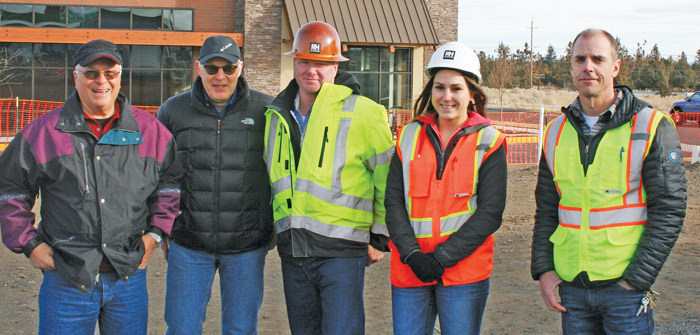Portland-based Maletis Beverage, a distributor of domestic, craft and imported beers, as well as non-alcoholic beverages, and The Odom Corporation, a distributor of foreign and domestic beers, wines, spirits and soft drinks, including Coca-Cola of Alaska, announced the formation of a joint venture called Odom-Maletis Beverage with plans to operate distribution facilities here in Bend and begin hiring employees in the weeks ahead.
Details of the new venture were not immediately available, but a press release issued by the newly-formed company says “in each market, Odom-Maletis Beverage will hire salespeople, delivery drivers and merchandisers.”
A press release posted on Maletis Beverage’s website says the “initial push will be into the Mid-Valley, Central and Southern Oregon areas currently not covered by either distributor,” and that “combined, the Odom Corporation, Maletis Beverage, and the newly formed Odom-Maletis Beverage will provide service to over 20,000 retailers in the four state region of Alaska, Washington, Idaho and Oregon.”
“As we expand our wine and non-alcohol products distribution network into Oregon, our joint venture with Maletis Beverage will create a superior route to market for our customers and suppliers,” Odom Corporation President and CEO John Odom said in a prepared statement. “We are excited to join with Rob and his team of professionals who bring excellent market penetration and service to the Oregon market.”
The consolidation of distributors is a factor that soon will be influencing business for Bend’s craft brewers is. On top of the Odom-Maletis announcement, earlier this year Columbia Distributing Co. of Portland, Mt. Hood Beverage Co. of Portland and Gold River Distributing of Medford announced they would merge to create CoHo. When the merger is completed in September, the company will become one of the largest beverage distributors in the Northwest.
At this point no one is really sure what effect this will have on the market place other than it may have negative affects on smaller, new brewers, like Three Creeks Brewing in Sisters, who have yet to establish long-term relationships with a distributor.
What having fewer choices for distribution means is a really good question at this point, and anything anyone predicts right now is pure speculation, Kennelly said.
Underwood has one idea for smaller brewers, or other business owners, looking to save on distribution costs.
“If someone in town is ordering from the same supply company perhaps a deal could be worked out where you get them to throw in what you need on top of their order and pitch in on the delivery cost because right now transportation is killing people,” he said.
Another facet of distribution for brewers is an Oregon law requiring companies to have a distributor when they produce and transport more than 1,000 barrels of beer per year, which equals 31 gallons or about two kegs. When a craft brewer has to pay a distributor’s margins, suddenly the brewery goes from realizing a healthy profit margin, which differs for each company, at 999 or fewer barrels to a significantly smaller margin after 1,000 barrels are produced.
“You have to make a lot more beer in order to make any money,” Underwood said.
There is a movement out there in Oregon among smaller micro-breweries to have the barrel allotment increased so they can produce more barrels annually before having to sign on with a distribution company. For instance, Three Creeks could brew between 1,500 and 1,800 barrels a year with its current system in place, but under existing regulations it’s not profitable for them to do so, which some observers say is a backwards deal.
“Any time you’re the little guy in a pool, if you go through a distributor who has 100 products to one that has 1,000 products it’s harder to be heard in that environment,” Fish said. “The smaller suppliers are trying to figure out how to make sure their products get fair representation in that environment, and we are too. But it’s inevitable. I don’t view the consolidation of the industry as a positive or a negative, it’s simply inevitable. And there is no secret to getting a good deal. You work hard and demonstrate value every day and that’s what anyone does in any of these types of situations.”




